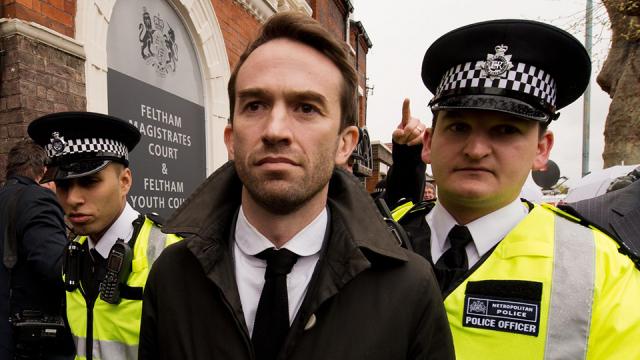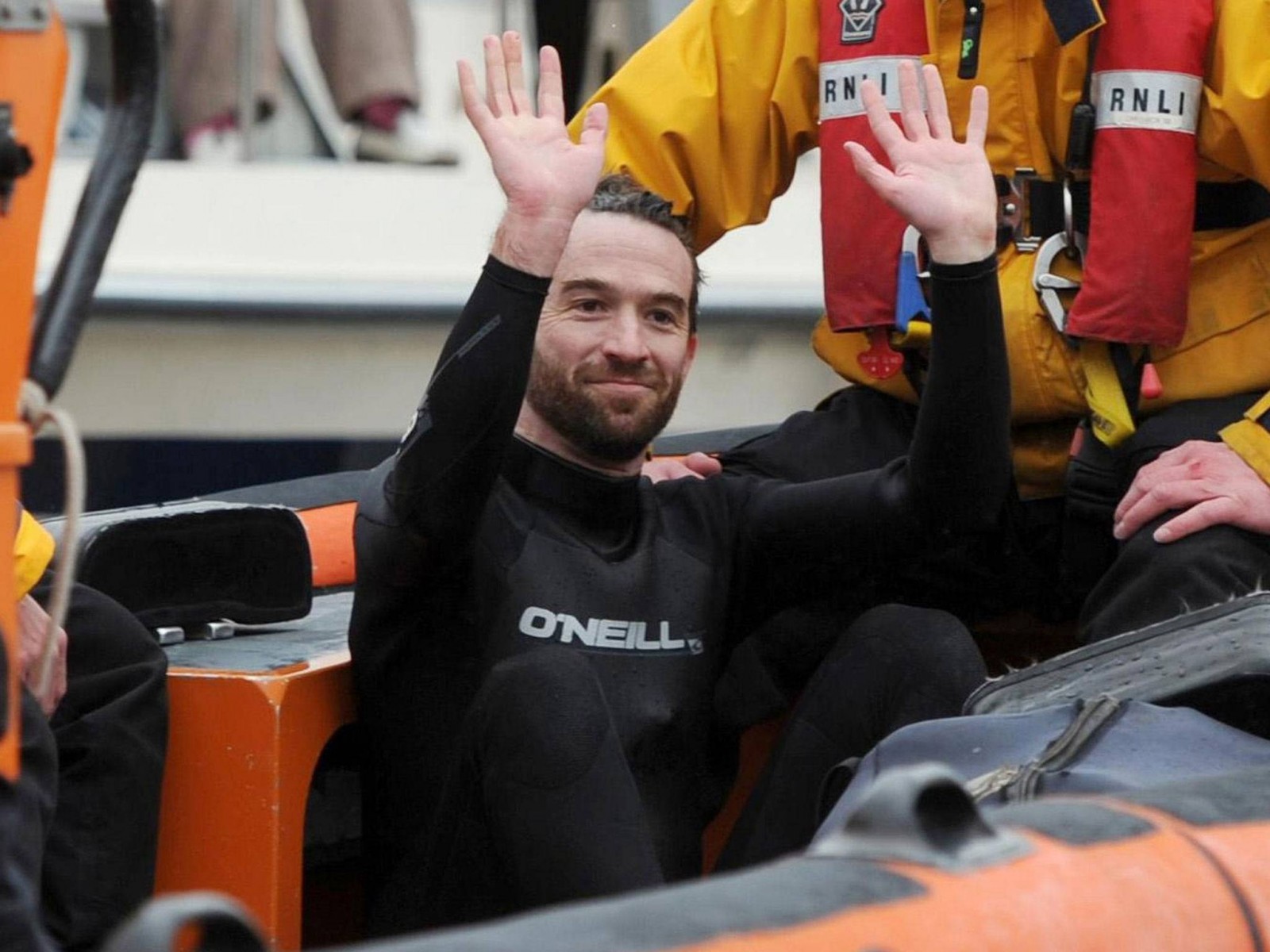
Trenton Oldfield was imprisoned for interrupting a boat race last year. Now, the protester faces deportation. The government that directly interfered to cause his incarceration wants him out of the country. Their rationale: he may “threaten national security.”
Recalling his protest swim that challenged classicism and elitism in Britain while targeting a 2012 boat race between the U.K.'s two most exclusive universities, Oldfield said: “On Tuesday and Wednesday, the Government continued to push ahead with privatizing state healthcare and legislation that attacked people's digital privacy. On Thursday, they told the public to inform on their neighbors, if they 'might' protest against the Olympics; so I bought a wetsuit to swim on the Saturday.”
A U.K. resident for over a decade, Oldfield, 37, works alongside his British wife Deepa running a publishing house. With his legal appeal due December 9, Oldfield spoke with Occupy.com about his deep critique of the British establishment and explored how one peaceful protest made the government so insecure it now seeks to deport him.
Within two weeks of Oldfield's swimming protest, senior Conservative MP Michael Ellis had already pressured the Metropolitan Police to increase his charge to a prison sentence. The reaction was indicative of current U.K. responses to peaceful protests.
UN Special Rapporteur Maina Kiai has expressed “deep concerns” that British police are infiltrating activist groups. Kiai's extensive criticism also condemned police crackdowns on peaceful assemblies, and treating nonviolent protesters as “domestic extremists.”
“The government's attack on protesters is like 1960s East Germany," said Oldfield in our recent interview. "Peaceful protests often end due to state violence, like the anti fascist rallies, the 182 cyclists arrested at the Olympics and the heavy policing of Thatcher's funeral.”
Oldfield drew attention to the consequences for individual protesters, including two occasions when people were criminally charged for shouting during speeches given by Prime Minister David Cameron. One shouted: "No Ifs – No Buts – No public sector cuts," and wassentenced to 100 hours of community service.
Another, said Oldfield, was found guilty of intimidation for shouting, "You have blood on your hands," in reference to U.K. government cuts in support for the disabled.
The decision finally to remove Oldfield from Britain came from a senior government minster, Home Secretary Theresa May. Oldfield said he was informed the week his wife was due to give birth to their first child.
The letter, he said, stated that he was “undesirable and has unacceptable associations and could be considered a threat to national security.”
“These phrases are so broad and vague,” he said, “you cannot grasp or refute them. It was the same with the law they [used to] charge me. It is absurd how vulnerable you are, when the state accuses you of this. It will tear me apart from my family and separate me from my friends, life and livelihood.”
So why, truly, does Oldfield think the government want him out?
“It was partly due to [the action's] guerrilla ethos," he said. "I did it alone, as one individual, and this threatens the government because they cannot infiltrate or control it. It's the same way the U.S. government are threatened by the work of [Edward] Snowden or Wikileaks.”
Oldfield said he advocates peaceful acts of civil disobedience against the British government because that government is forwarding an unyielding attack on people's rights and lives. “Their agenda is 'shock and awe' tactics: cuts and assaults on peoples' lives almost daily — like the three policies that went through in the week I swam," he said.
"Recently we've seen the Bedroom tax, the Occupy clampdown, smashing free education, arrests for tweets, and the immigration bill to name a few. They all benefit the elites whilst smashing the majority's ability to be humans.”
Consumed by his appeal case, which has gotten pushed farther and farther back, Oldfield missed out this year spending time with his family and has had to postpone an annual political festival he organizes. Last year’s festival included 60 free events, with panel talks and discussions — and featured a packed audience that showed up to hear Sylvia McAdams, one of the founders of the indigenous Idle No More movement in Canada.
Oldfield's protest swim that interrupted last year's boating race not only shined a light on the wealth and power of the British upper class, but gave Oldfield a platform to articulate criticisms of Britain's history of empire, genocide, slavery, war and exploitation. Rather than engaging with these points, large swathes of the nation's media suggested instead that his protest statement was "idiotic." The scale of the reaction and personal attacks against Oldfield surprised him.
“Someone criticized me for engaging in peaceful protest, whilst they wished the blades of the boat had violently hurt me,” he said. Public outrage was perhaps epitomized in a piece written by journalist Melanie Phillips, a former student of Oxford University, who argued that because Oldfield had attended the London School of Economics and came from a privileged background himself, he should not engage in public protest.
“My background is definitely one of privilege,” Oldfield said, “mainly white privilege – but this argument is ridiculous. They were against the protest because it targets the two elite universities that make up most of the mainstream media. As someone of privilege, who better to protest?”
Oldfield criticized Britain's mainstream media for the way they deal with stories of corruption — like the recent revelations that the U.K. government spied on other leaders at a G8 Summit. What connects the stories of corporate and political corruption, he said, is that those found guilty are seldom jailed.
So what does Oldfield think about going to jail for a swim, while so many have not seen a day behind bars for crimes that affect the lives and security of so many?
“I would not advocate for those people to go to jail,” he said. ”Whilst I was in jail I asked, what is the point? No one could answer it. Instead, I don't want vengeance — just for the injustice to stop. I think this a key project of [the] century.”
He elaborated: “We need to put energy into research to stop the narcissistic personality disorders and sociopathic tendencies that cause a small minority to do so much harm. These personality traits need to be considered as socially unacceptable as they are socially harmful.
"Additionally, the whole of society needs to be considered through the lens of equality, to recognize and address racism, sexism and class privilege," he added. "I'm not suggesting this would lead to a utopia, but instead the continual process [of] checking society to create a far better one.”
3 WAYS TO SHOW YOUR SUPPORT
- Log in to post comments












